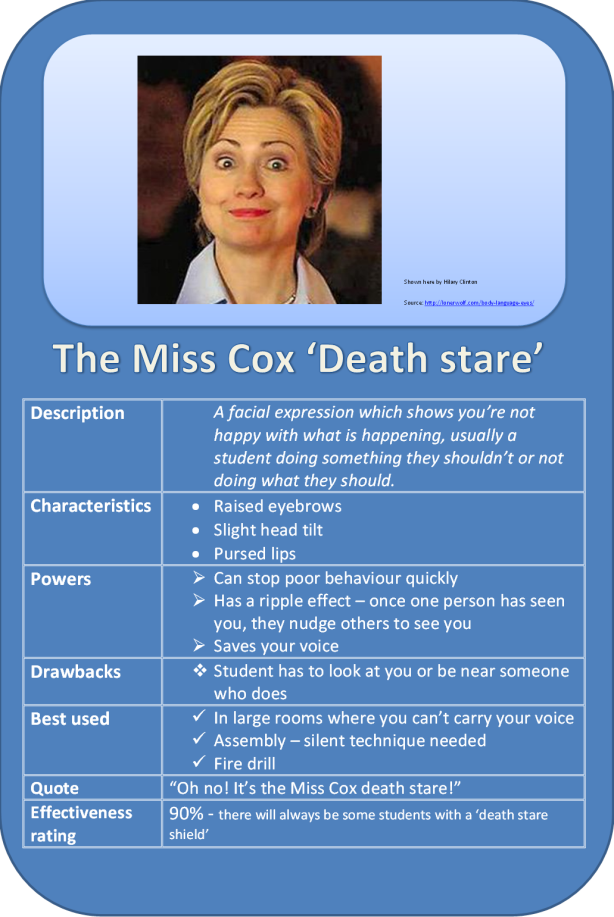Dear Tristram,
I would like to share with you what I think the purpose of a secondary school is and how our current system doesn’t meet the needs of all of our students.
I believe that we should be preparing our students for the world not for exams. Very cliched but essentially it is our core aim.
What do they need to succeed or even ‘survive’ in the UK today?
- Basic literacy and communication skills (including communication using the latest technology)
- Basic numeracy skills – enough for what they need in real life
- Basic finance skills – to live by their means, not get into debt & understand how to manage the money they have
- Personal, social and health knowledge, understanding and skills – this covers so many things including sex & drugs education
- A knowledge & understanding of those around them including those of differing religious, cultural, sexual and political views – This is essential for us to have a cohesive, safe society
- Empathy – to understand other people around them, even if they don’t agree with them
- Problem solving skills – when the answer to their problems isn’t in front of them
- Resilience – so they don’t give up at the first hurdle in life.
- A sense of responsibility – for themselves, those around them and others in the world
- The qualifications and grades needed for them to follow the career path that they choose and the correct information and guidance to get them there
Do we offer this to our students?
Whilst superficially you could answer ‘yes’, these are mostly in the curriculum in some way or another. I don’t think we do. I think that the current system of testing and league tables means that schools are too scared to ensure that every student has the above. They may never admit it but how many schools:
- Don’t regularly teach Citizenship and PSHE to a high standard, addressing the core issues above?
- Don’t fulfill their responsibility to provide RE to all key stages because other subjects are more ‘important’?or use untrained teaching assistants to teach it in a teacher’s PPA time?*
- Make students take English GCSE when they can barely read and/or write?
- Make students study what the school wants them to study instead of what they want to or need for their chosen career? (i.e forcing them to take Ebacc subjects)
- Until recently, enter and re-enter students into exams to keep ‘trying’ to achieve a ‘C’ or at least 3 levels of progress?
- Tell their students that Maths & English GCSE are the ‘most important’
- ‘Spoon feed’ students because teachers are so scared students won’t learn enough to achieve the target grade calculated for them from a test that they sat 5 years previously.
- Are making students learn subject matter that is irrelevant to students that want to excel in a vocational field such as hairdressing?
- Design their curriculum for maximum benefit for the ‘school’ rather than for the child?
To clarify, I am not against students studying English, Maths or any other subject. I am not against them learning a language or the history of England, but it must be appropriate for the student. It mustn’t be at the cost of other basic skills.
Schools are under pressure to ‘make’ students take subjects that are recognised in some way, either in progress 8 or the Ebacc to the severe detriment of some children. No wonder some of them hate school. They’re being made to study things that hold no relevance to their future, that they didn’t choose. Schools should not have that pressure put upon them. No child is more important than another because of the subject or the level of the qualification they take.
I’m not saying that students should be able to take an ‘easy’ path or only ever study what they want to learn. Life isn’t like that and it is through challenge that students gain resilience however qualifications in subjects should have parity. For example how can Biblical Hebrew (which counts as a language in the Ebacc) be seen as more ‘important’ than Art or Music or Philosophy?
I believe that the current key stage four courses and accountability systems are not preparing ALL our children for the real life ahead of them. This doesn’t mean lowering expectations. We should have high expectations for ALL children however we must accept that this means different things for different children. Not a ‘C’ grade for all. This is unrealistic and puts unrealistic pressure on teachers and schools to try to achieve. Teaching for the exam is rife and necessary for the survival of some teachers in their jobs.
Education needs to be a system where teachers and schools are accountable, however not for students learning the kings and queens of England, but for preparing children for their life ahead and to make a positive contribution to our country,whilst hopefully enjoying the process, rather than it being a constant game of numbers and tables.
Regards
Dawn Cox
Secondary teacher
* Some of whom do a fantastic job on little time, training and resources
